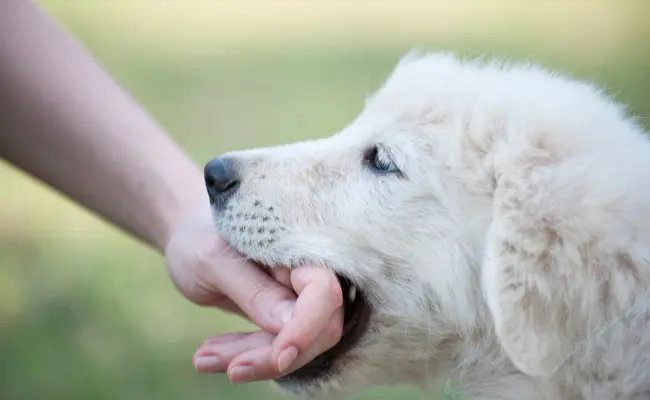
Dog bites can occur unexpectedly and can have serious consequences, physically and emotionally. Understanding why dogs bite and knowing how to handle the aftermath of a dog bite incident is crucial. Dogs, like humans, have their reasons for their actions – fear, illness, or instinct can provoke a dog to bite. After an accident, it’s important to seek immediate medical attention, report the incident, and consult with a legal expert if necessary. This document explores the reasons behind dog bites and guides you through the necessary steps in the aftermath of a dog bite.
Consult a Legal Expert
If the bite is severe or leads to significant medical costs, you may need to consult a lawyer to understand your rights and possibly seek compensation. A lawyer can give you advice on whether a settlement is appropriate or if the case should be taken to court. They will help protect your interests and ensure that you receive adequate compensation for medical bills, pain and suffering, loss of work, etc. Moreover, make sure you get in touch with the local attorneys, as the Orange County dog bite lawyer can help you with the legal proceedings in that county, while a Los Angeles-based lawyer might be more knowledgeable about the laws in that city. Even if you don’t plan to pursue legal action, an attorney will provide valuable advice and guidance on what to do next.
Seeking legal counsel after a dog bite accident can help protect your rights and ensure you receive adequate compensation for any resulting expenses. A dog bite attorney knowledgeable about the laws in your area can provide valuable guidance and support, even if you do not plan on pursuing legal action.” – lawyer from The Dixon Injury Firm.
Seek Immediate Medical Attention
Seeking immediate medical attention following a dog bite is paramount, even if the injury seems minor. Punctures, lacerations, or deep wounds may necessitate stitches or other medical interventions. Dog bites carry the risk of bacterial infections, including Pasteurella, Staphylococcus, and in some cases, rabies, which can be fatal if not promptly addressed. Additionally, a healthcare professional can assess the severity of the injury, document it for legal or insurance purposes, and guide you on necessary follow-up care. Always remember, that delaying medical attention may exacerbate the injury and lead to complications, potentially impacting your health and any legal claims you may be considering.
Document the Incident
Proper documentation serves as an objective account of the incident, providing crucial evidence if you choose to seek compensation or report the incident to local authorities. To accurately document a dog bite incident, you should first record the details of the event while they are fresh in your mind. Document the circumstances leading up to the bite, the behavior of the dog, any potential witnesses, and the aftermath. Include details such as the date, time, and location of the incident. Photograph any injuries sustained, as well as the scene of the incident if possible. This provides a visual record of the severity and immediate impact of the bite. If there were any witnesses, their account of the events can prove invaluable. Collect their contact information and, if possible, secure written statements from them. Finally, keep copies of all medical reports, bills, and any correspondence related to the incident.
Report the Bite
In many regions, it’s a legal requirement and helps in tracking and managing public health risks associated with rabid animals. To report a dog bite, you should contact your local animal control or non-emergency police department. Provide them with as much information as you can, including the details of the event, the dog’s description, and, if available, the dog owner’s name and contact information. If the dog is a stray, provide a detailed description and the location where the bite occurred. In some areas, you may be required to fill out a dog bite report form. This form will ask for specifics about the incident, the dog, and any injuries you sustained. The report becomes part of the dog’s record, and if the dog is found to have bitten anyone before, the authorities can take the necessary action to prevent further incidents.
Follow-Up Medical Checkups
Post a dog bite incident, it is crucial to adhere to all follow-up medical checkups as advised by your healthcare provider. These follow-ups enable medical professionals to monitor the healing process, check for potential infections or complications, and provide any additional treatment needed such as booster shots, wound care, or mental health assistance. A dog bite can sometimes result in physical trauma, and in some cases, psychological distress, which may necessitate additional sessions with a psychologist or counselor. Consistently maintaining these medical appointments also contributes to a thorough medical record, aiding in any potential legal proceedings. Always remember that your health is the priority, and these follow-up check-ups play a significant role in your recovery process.
Educate Yourself and Others
Education is key to the prevention of dog bites. Learn the signs of canine aggression and take steps to avoid similar incidents in the future. Make sure you educate your family, friends, and children on how to behave around dogs to prevent any potential accidents. Additionally, if the dog is yours or a pet you know well, consider seeking out professional help from a certified dog trainer or animal behaviorist who can provide guidance on proper training methods and behaviors. Ultimately, we should always treat our four-legged friends with respect and kindness to ensure a safe and harmonious environment.
Provide Your Dog With Training and Socialization
Proper training can help your dog become accustomed to new environments, people, and other animals. Proper socialization can also make them more comfortable around unfamiliar situations. If you are unable to enroll your dog into a formal training program, you can always consult with an experienced animal behaviorist. These professionals can provide guidance on how to properly train and socialize your pet. Additionally, they may be able to detect any underlying issues that could potentially lead to aggression in the future. It’s also important to spay or neuter your pet, as this can help reduce aggressive behavior.
Dog bites can be both physically and emotionally traumatic experiences, but knowing how to properly handle these accidents, and familiarizing yourself with the necessary steps to take afterward can ensure a smoother recovery for everyone involved. Always remember that seeking legal counsel may be beneficial in some cases; local attorneys such as the Orange County Dog Bite Injury Attorneys can provide experienced legal advice and assist with any potential claims. Navigating the aftermath of a dog bite accident can be difficult, but arming yourself with the necessary information can help make the process easier and ensure you receive the justice you deserve.



